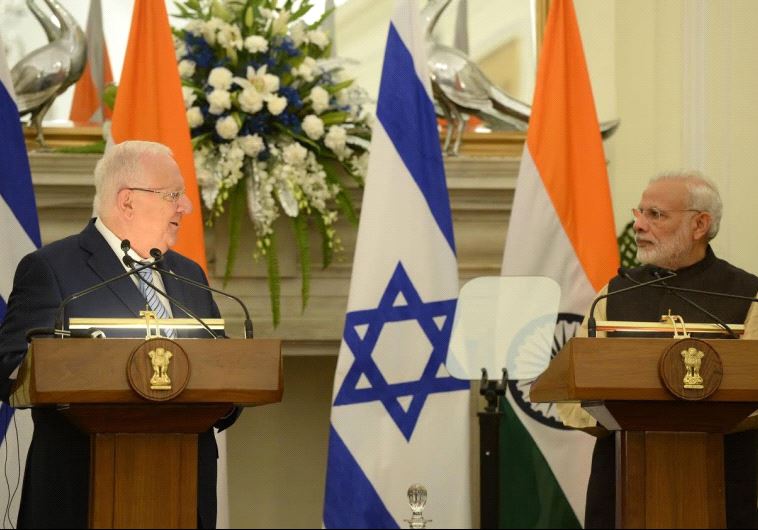Indo-Israel relations at 25
Weeks before Modi’s visit to Israel, Indian Navy chief Sunil Lanba flew to Israel to attend discussions on strengthening military cooperation.
 President Reuven Rivlin meets with Indian Prime Minister Narendra Modi(photo credit: Mark Neiman/GPO)
President Reuven Rivlin meets with Indian Prime Minister Narendra Modi(photo credit: Mark Neiman/GPO)